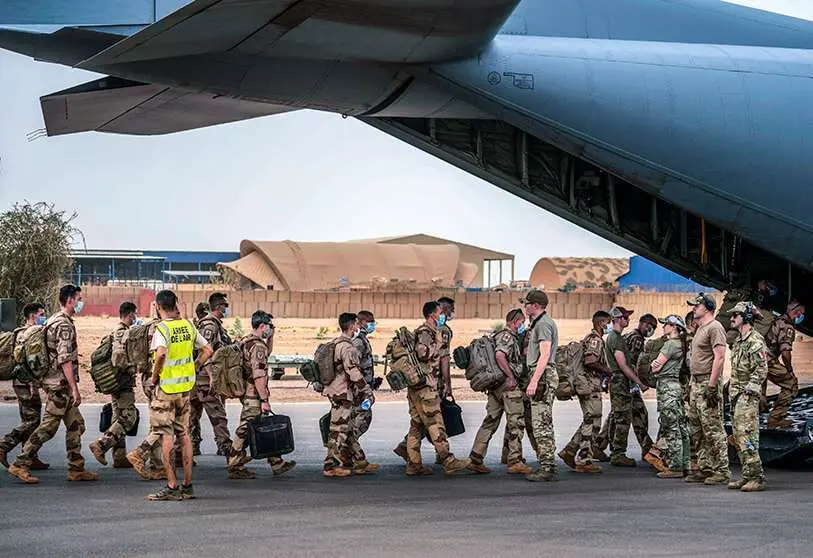Sahel: A new phase full of doubts

This month, Europe celebrates six months since the start of the war in Ukraine, without knowing when it will end. While this was happening, in Africa, and more precisely in the Sahel, the war against terrorism there entered a new phase: on 15 August, France definitively abandoned Mali, relocating its forces to neighbouring Niger. This gesture puts an end to nine years of French intervention, initiated to prevent the fall of Bamako to the jihadists at the request of the Malian government. Since then, the situation has not improved, as jihadism is still present in Mali, spreading throughout the region and showing signs of strength and resilience. Politically, the mission has come at a cost, for as much as Paris claims to be relocating its forces, the fact that they are being expelled by the military junta that rules Mali, allied with Moscow and hostile to any French and European aid, escapes no one. Indeed, it can be argued that the French intervention in Mali has been a failure, as it did not achieve its objectives of ending the terrorist threat and stabilising Mali. The relocation of forces to Niger rekindles fears that the jihadists could once again put Bamako on the ropes.
Fears are heightened when one considers that, as of today, instability in the two countries most affected by the terrorist threat - Mali and Burkina Faso - is worsening, with 4,817 people killed in both countries between January and June, making this the bloodiest year since 2013. In both countries the al-Qaeda affiliates JNIM and Ansarul Islam are expanding their area of operations into more urban areas, attacking in Mali targets close to the capital such as the military base of Kati, residence of President Assimi Goïta - 15 kilometres from the capital Bamako - and the military bases of Kolokani and Douentza also close to the capital while in Burkina Faso the terrorists, who control the rural areas of the Sahel and Centre-Nord regions bordering Niger and Mali, are isolating the towns in these regions as well as destroying any state presence in the area. This show of force by jihadist groups certainly indicates that they are exploiting the French withdrawal to launch an offensive aimed at destabilising the governments of both countries, which bodes ill for the future of the region.
Against this backdrop, one wonders whether it is logical for the French presence to move to Niger. While it is true that Niger's western border - where it meets Mali and Burkina Faso - is the epicentre of the fight against terrorism, it is also true that, unlike Mali and Burkina Faso, Niger's geographical location distances it from the two countries described above as epicentres of the fight against terrorism. Burkina Faso, where as we have described the situation is worsening, straddles the Sahel and West Africa, bordered to the south by coastal states such as Côte d'Ivoire, Ghana, Benin and Togo. The rise to power of a jihadist group in Ouagadougou would most likely expand the jihadist threat into the Atlantic, putting maritime traffic in the area at risk. We will have to see how the situation evolves in the remainder of this year and next to see whether Paris' decision to relocate to Niger was the right one. We will also have to see how the situation evolves in Mali and Burkina Faso, especially in the former, where the presence of Russian mercenaries from the Wagner Group has been characterised more by their atrocities than by their effectiveness in stamping out jihadism.
In conclusion, while the war in Ukraine continues in Europe, celebrating six months since it began this month, in the south of the continent, in the Sahel, a new phase in the fight against terrorism opened up. France relocated its military presence to Niger, ending nine years of presence in Mali. This comes at a time when the counter-terrorism threat in Mali and Burkina Faso is gaining momentum, with al-Qaeda affiliates expanding their operations into urban areas and causing heavy casualties, most likely aimed at taking control of both countries. In this respect, the relocation of the French military apparatus to Niger may be questionable, as Niger is not as important a geo-strategic position in the fight against terrorism as Burkina Faso, bordering both the Sahel and the Atlantic coast of Africa. A fall of Burkina Faso into the hands of jihadists would expand the terrorist threat towards the coast, worsening security in the region. What happens over the course of 2022 and next year will tell whether the French decision was right or wrong and whether the terrorist threat expands or not. Only then will we be able to assess whether the Sahel will remain a threat on Europe's doorstep or not.

